Strength in Difference: CloserStill’s Celebration of Neurodiversity at Work
What is Neurodiversity?
According to NHS England, Neurodiversity refers to the natural variation in how our brains work. While neurotypical individuals may express themselves and process information in ways that align with societal ‘norms’, neurodivergent individuals - those with conditions like Autism, ADHD, dyslexia, and others - may think, behave and interact in different ways.
In celebration of the upcoming Accessibility & Neurodiversity Week, four CloserStillians in the UK have kindly shared their experiences with neurodivergences. Through their stories, we hope to raise awareness, encourage understanding and emphasise the importance of creating an accessible and supportive workplace for all.



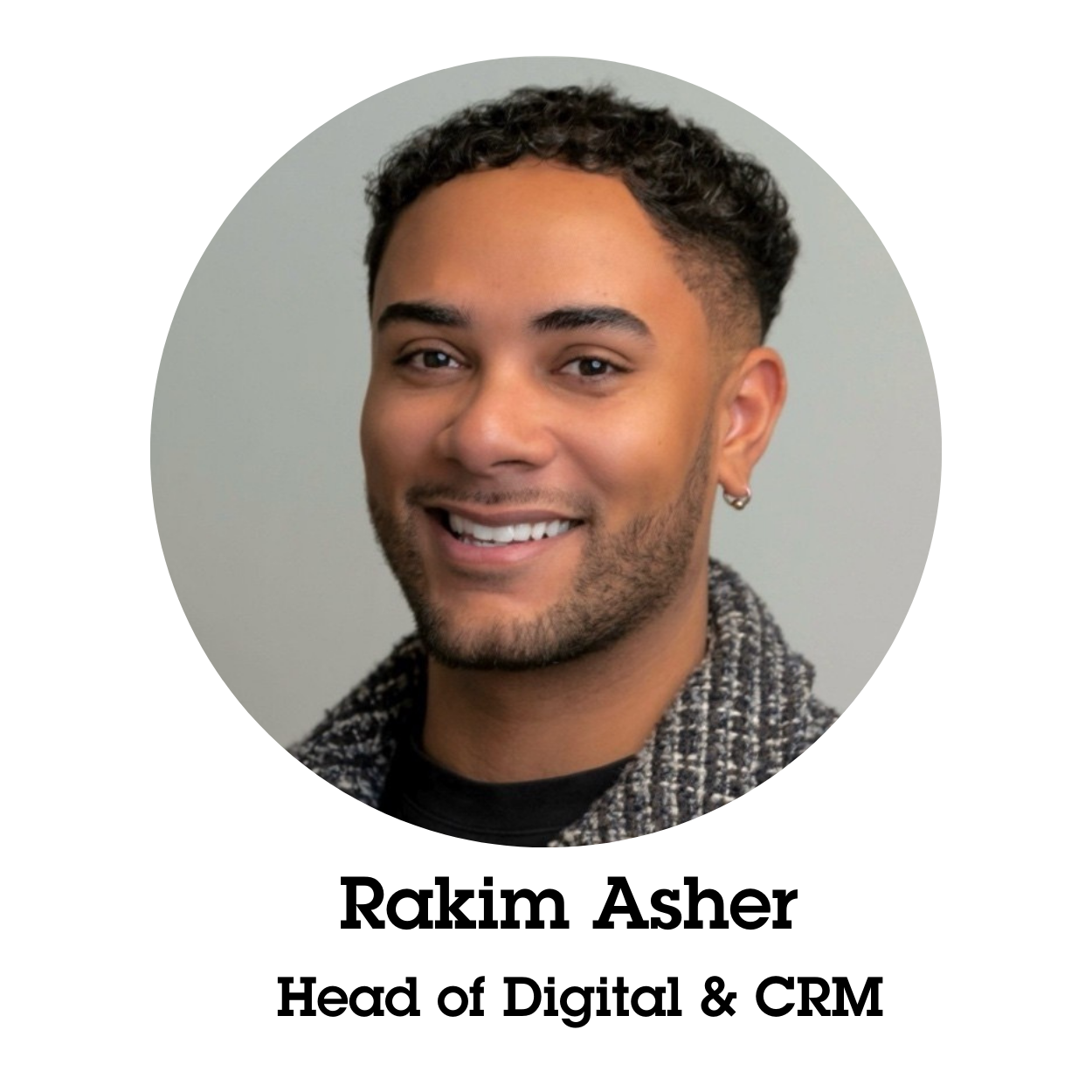
How does your neurodivergence impact you at work?
Hattie: My ADHD means I struggle with organisation and prioritising. Working on a centralised team, I talk to everyone, so I have a lot of emails to respond to and meetings to attend every day which I can find overwhelming sometimes.
Laura: The main difficulty for me with Auditory Dyslexia is that I need to be able to process things in my own way. The best way to describe it is, taking minutes in a meeting is okay, but if I need to contribute to the meeting at the same time, my brain is not wired to do that. Other struggles include things like constantly rewriting an email or difficulty reading certain fonts.
Rakim: My initial struggle with Dyslexia when I entered the corporate world was that I was used to writing everything down but then suddenly I had to type. There weren’t any of the AI tools around when I started so I was a lot slower than everyone else. It was tough - that’s why I branched out into digital marketing because it’s much more adaptive.
Ben: My ADHD sometimes makes it difficult for me to be organised and present at work but my medication helps to balance that. However, there are peaks and troughs when you’re on medication, so I’ve had to adjust my workload at times to accommodate that. My psychiatrist and I also suspect that I have Autism and a big symptom of that is that I struggle to hold eye contact which I can be self-conscious about.
What accommodations or support systems have made a difference for you?
Hattie: Transcribing tools are really useful, particularly when I have to send follow up notes because they ensure that everything is recorded for me. I also find it helpful to block out time for tasks. I come in early and leave early which is great because the first hour of my day is quiet, so I use that time alone to sort my inbox and to do lists out.
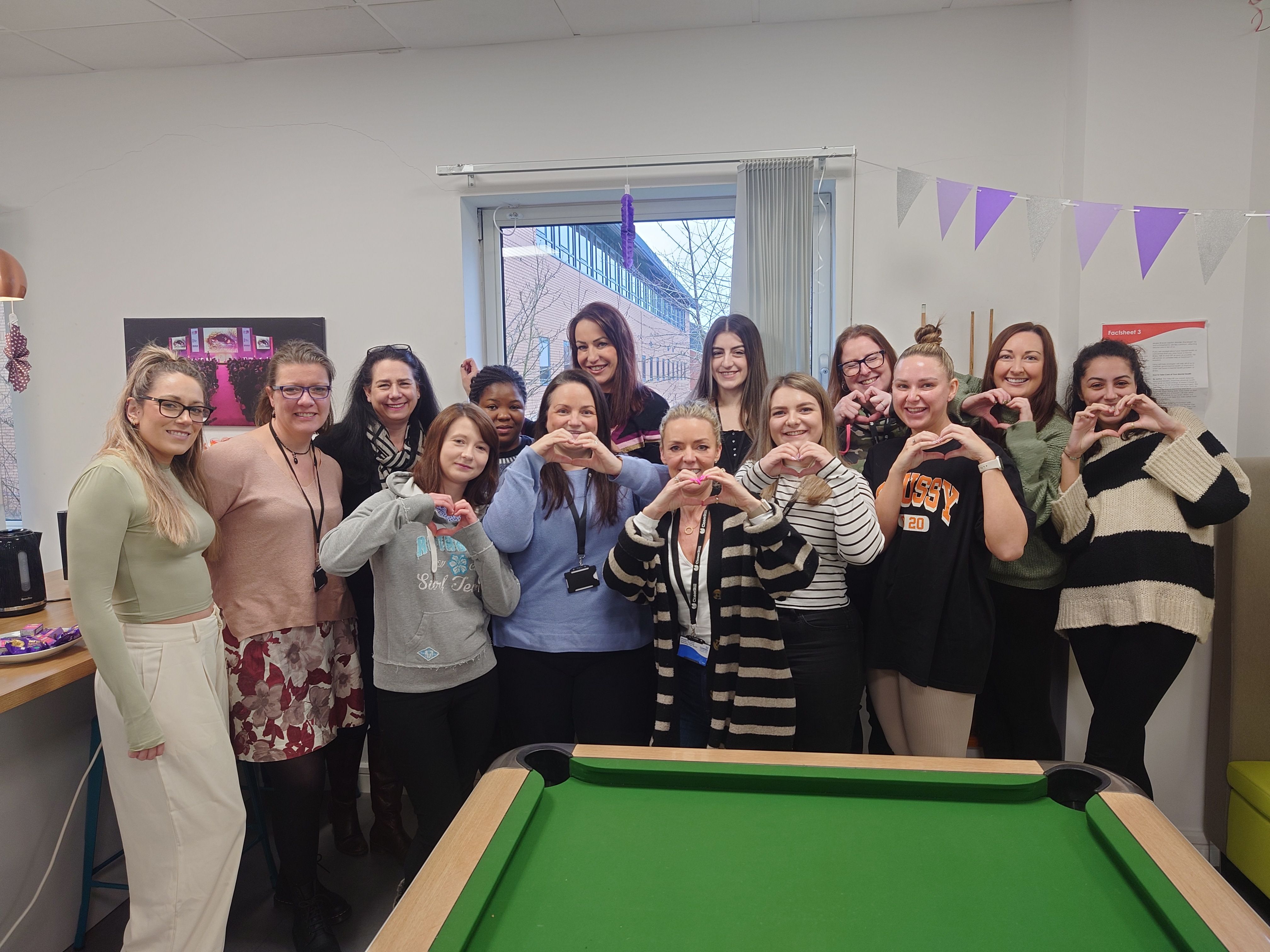 Laura: Before the world of AI, I used a Dictaphone to record meetings. I've also developed my own version of shorthand, so I can quickly write things down in a way that I'll remember what I mean. Drawing helps a lot too - if you ever see me on a call, I’ll always be drawing random patterns on a piece of paper with my free hand! It allows me to focus my attention on what I’m listening to.
Laura: Before the world of AI, I used a Dictaphone to record meetings. I've also developed my own version of shorthand, so I can quickly write things down in a way that I'll remember what I mean. Drawing helps a lot too - if you ever see me on a call, I’ll always be drawing random patterns on a piece of paper with my free hand! It allows me to focus my attention on what I’m listening to.
Rakim: Tools like Grammarly help me with spelling and Chat GPT and CoPilot have made me much more efficient. I feel skilled in my job tasks but tools like these have really supported me to grow in a corporate environment.
Ben: Software such as digital calendars or planners for organisation are great! In fact, a lot of other members of my team end up adopting my tools because they also find them useful. Flexible working also really helps because it allows me to work when I’m feeling my best.
What are some strengths or unique perspectives you feel your neurodivergence brings to your role?
Hattie: Thinking outside the box is a big thing. In a room full of people thinking in the same way, there’s only a finite number of ideas. A big part of my role is problem solving and my ADHD helps me because I find new ideas that others don’t.
Laura: I find that I'm able to work quite quickly and I’m a great orator. I’m also very good at proofreading because I can visualise words. I can tell you if a word is spelled wrong by the shape of it. I can't tell you necessarily how it fix it, but I can spot a mistake easily.
Rakim: My dyslexia makes me very organised. It gives me a superpower to know what’s going on with absolutely everything. Sometimes I do get picky over things being filled out correctly like spreadsheets for example, but I’d say that overall I consider it a good thing.
Ben: I think that my ADHD definitely allows for more creative thinking and it also gives me the ability to speak to all sorts of people. I’m often told I’m very approachable and easy to talk to which has really helped me throughout my career.
How has the team made an inclusive environment? 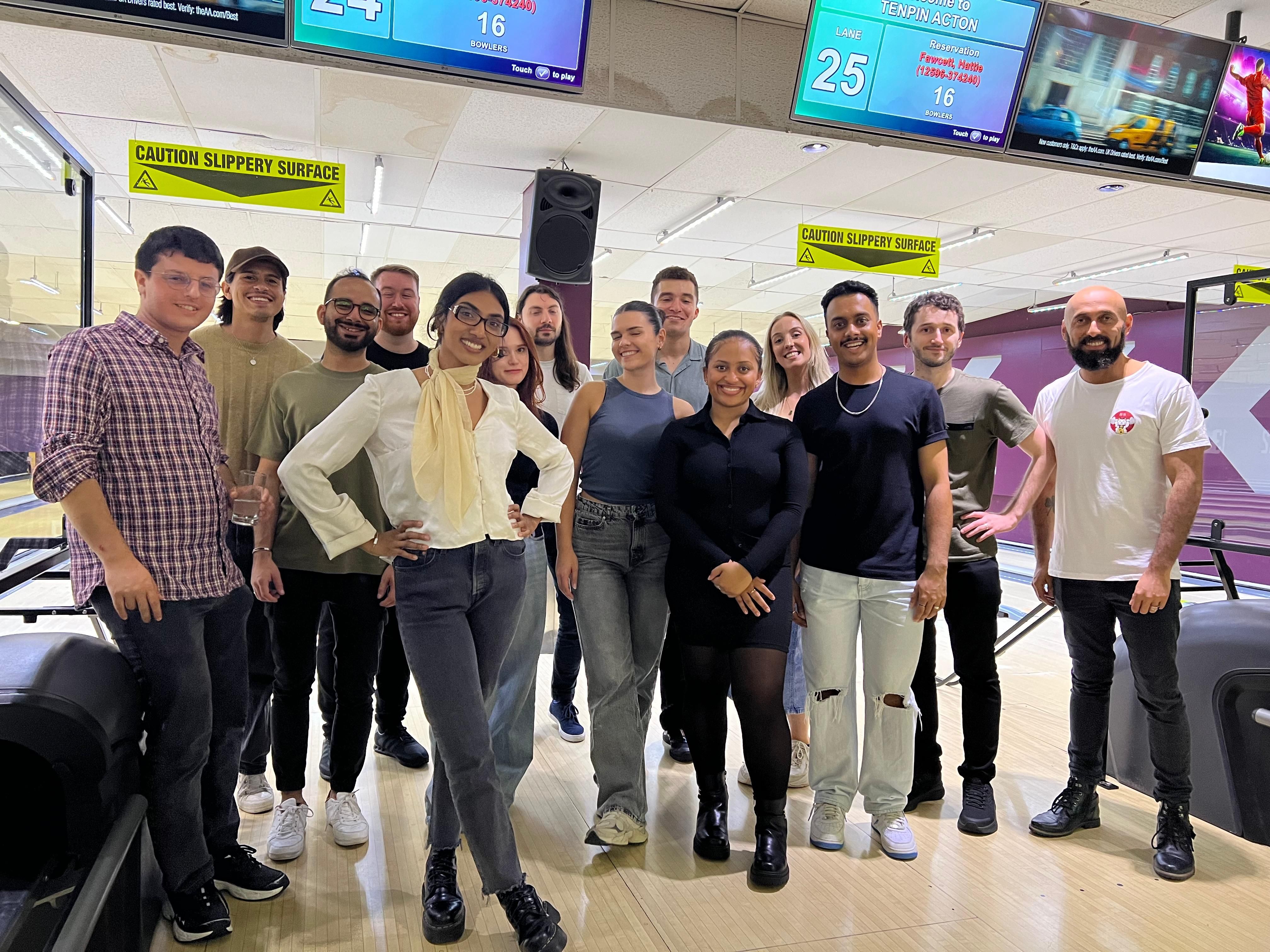
Hattie: From the start I was very open and up front about my ADHD. Now that my team are aware, they know that I might react or think different to other people and that doesn’t mean that I’m bad at my job which is what I used to think- it’s just that I work differently. That’s who I am and that’s okay.
Ben: My team are really supportive and there has always been an open conversation about neurodivergence. Also, when I ask for certain digital tools that could help me, they are happy for me to try them out and there isn’t any judgement.
Does your neurodivergence impact your management style or the way you lead your team?
Laura: I’ve come to understand that my way of processing doesn’t automatically suit everyone in my team. It doesn't mean it's right or wrong, it just means that some people want to do it differently. Its about finding a balance so you can work well together.
Rakim: I’ve adapt the way I manage some people and also told managers on my team to do the same. I adopt a certain style that I know works and then implement this across the whole team, so nobody feels different or left out. There is an expectation for my team to deliver at a very high standard, and that can come with pressure but I don’t get annoyed if someone misses a small task for example. I keep it an open conversation and remind them to just keep me in the loop so I’m well informed.
What is a common misconception about neurodivergence that you wish was more understood?
Laura: Everyone is individual. My dyslexia is my own. I have found out what works for me and what doesn’t, but that doesn’t mean that another dyslexic person would have the same coping mechanisms.
Ben: People sometimes think that neurodivergent people are just robots or don’t feel certain things. A common one I hear is that autistic individuals are monotone or flat but for me anyway, I feel emotions very strongly, it’s just sometimes hard to place them or express them.
What’s one thing you would want your colleagues to know about fostering an inclusive work culture?
Hattie: Always be kind to people because you never know what’s going on behind the façade.
Rakim: Be more aware of how you communicate - there’s a way to navigate difficult conversations without making someone feel inferior.
Laura: Play to people’s strengths, don’t highlight their weaknesses.
Ben: If someone seems shut down or struggling, ask them if they’re okay and check on them because it makes a difference.
How can CloserStill support you?
We're always evolving how we support our colleagues, with a focus on creating a workplace where everyone can thrive. Whether you're neurodivergent or going through a challenging time, here is a reminder of some of the tools, spaces, and initiatives we have in place that might make a difference.
Quiet Room
For our London colleagues, we have a dedicated Quiet Room. It is a calm space available to anyone who needs a moment away 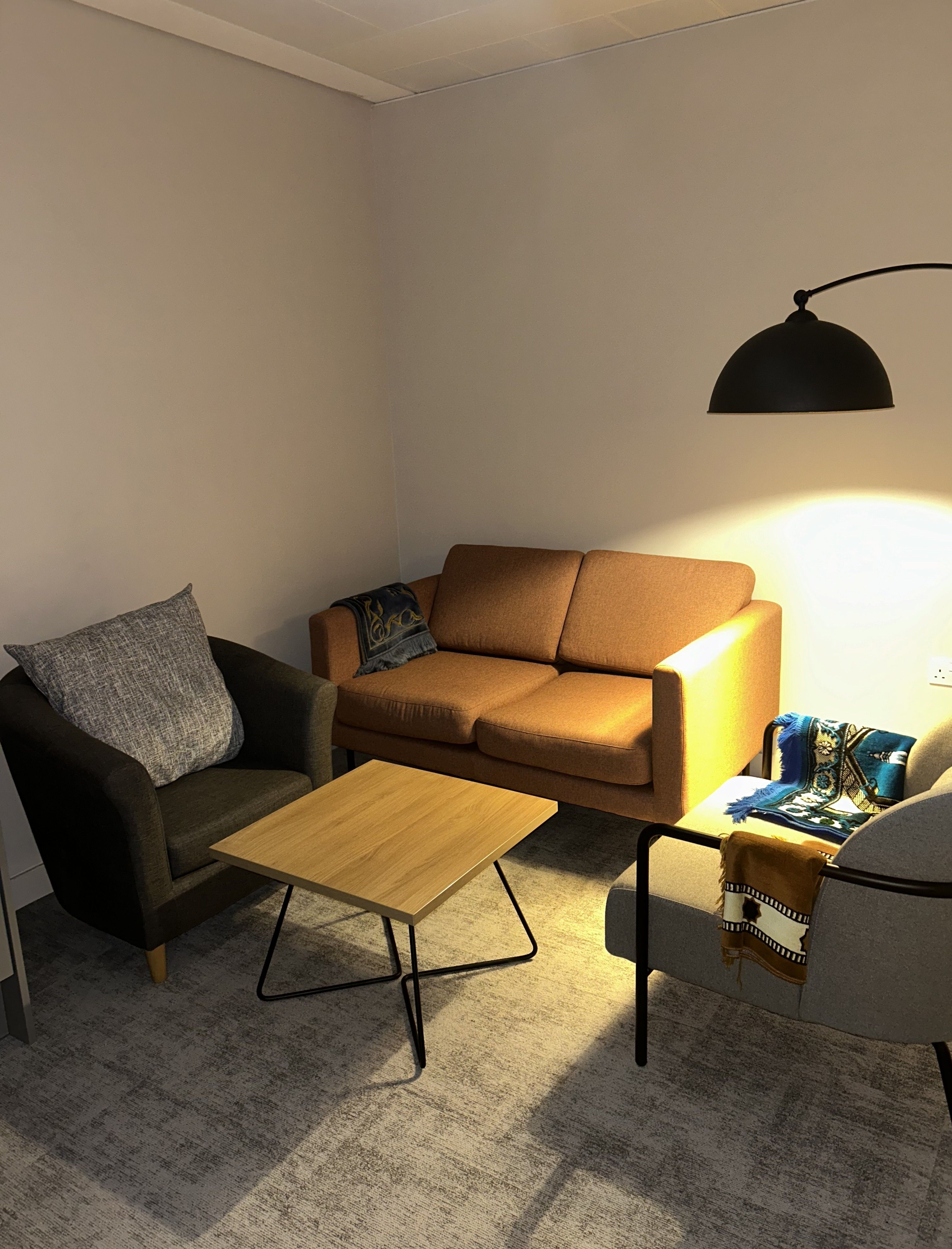 from their desk. Whether you need to pump because you're breastfeeding, pray or simply take a breather to clear your head, the room is there for you. We encourage everyone to take breaks when needed throughout the day. The Quiet Room can’t be booked in advance - just pop by and see if it’s free. The door locks from the inside for your privacy and comfort.
from their desk. Whether you need to pump because you're breastfeeding, pray or simply take a breather to clear your head, the room is there for you. We encourage everyone to take breaks when needed throughout the day. The Quiet Room can’t be booked in advance - just pop by and see if it’s free. The door locks from the inside for your privacy and comfort.
We also offer Quiet Rooms at many of our events. These are provided by Helen Moon of EventWell, a non-for-profit organisation championing neuroinclusion in the events industry.
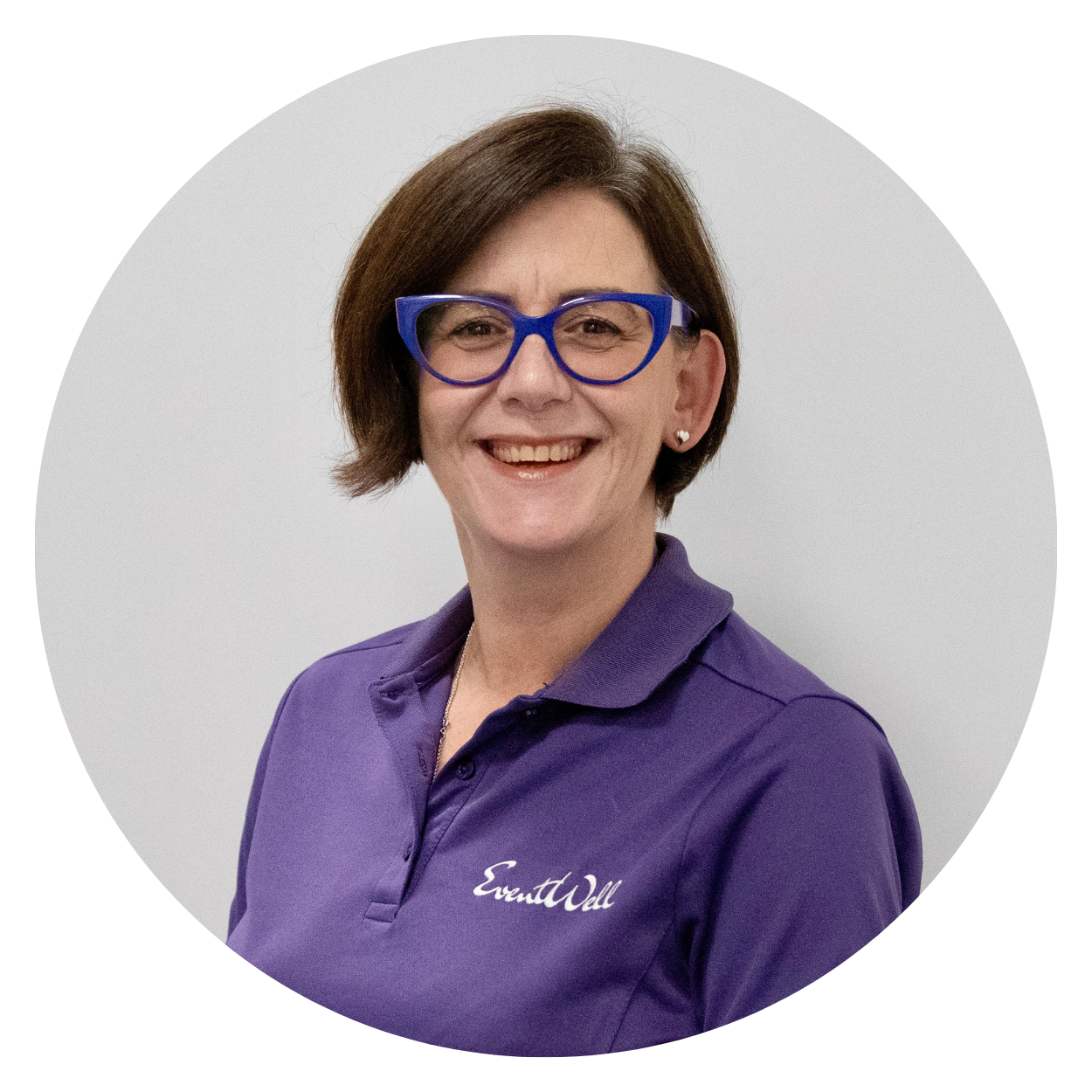 Helen explained to us why these spaces matter:
Helen explained to us why these spaces matter:
‘Quiet spaces are essential in both office environments and at events because they provide a safe, calm refuge from sensory, social and stimulation overload. For neurodivergent individuals – and frankly, for many others too – these spaces aren't a luxury; they're a necessity for functioning, self-regulating, and recharging. They help reduce stress, improve focus, and make environments more accessible and inclusive for everyone.’
Digital Tools and Reasonable Adjustments
As some of your colleagues shared in their interviews, we encourage open conversations with your manager about any reasonable adjustments that could help you do your best work. Whether it’s access to specific digital tools, a standing desk, or something else entirely, we're here to support your needs and are always open to discussing how we can help.
Flexible Working
We're committed to flexible working practices that support wellbeing, boost productivity, and promote a healthy work/life balance. Full details of all flexible working policies can be found on HiBob, including any site-specific variations. If you're interested in making use of our policies, speak to your manager to explore what’s possible.
Employee Assistance Programme (EAP)
Our Employee Assistance Programme (EAP) is here to support you through a wide range of personal and professional challenges. It offers 24/7 confidential counselling, life coaching, and advice on everything from work/life balance to mental health. The service is available in all the languages spoken in CSM’s local offices, making it accessible to our global team. You’ll also find a wide library of videos, PDFs, and resources covering topics like budgeting, family support, parenting, grief and loss, and both women’s and men’s health—many of which you can engage with right away. This can be accessed via:
Website: http://global.helpwhereyouare.com and use the Company Code: Closerstill
Email: support@resourcesforyourlife.com
App: Download the iConnectYou app from the App Store (iOS) or Google Play (Android)
A Final Reminder:
If you’re finding things difficult, please don’t hesitate to reach out to your manager-you’re not alone, and support is always available.
Helen Moon shared an important message with us:
‘One tip I’d give to CSM employees is: listen without assumptions. Neurodivergent experiences are incredibly diverse, and what works for one person may not work for another. Create space for open conversations, believe people when they share their needs, and avoid jumping straight to fixes – support starts with understanding.’
Keep an eye out for further training on this important topic later in the year.
